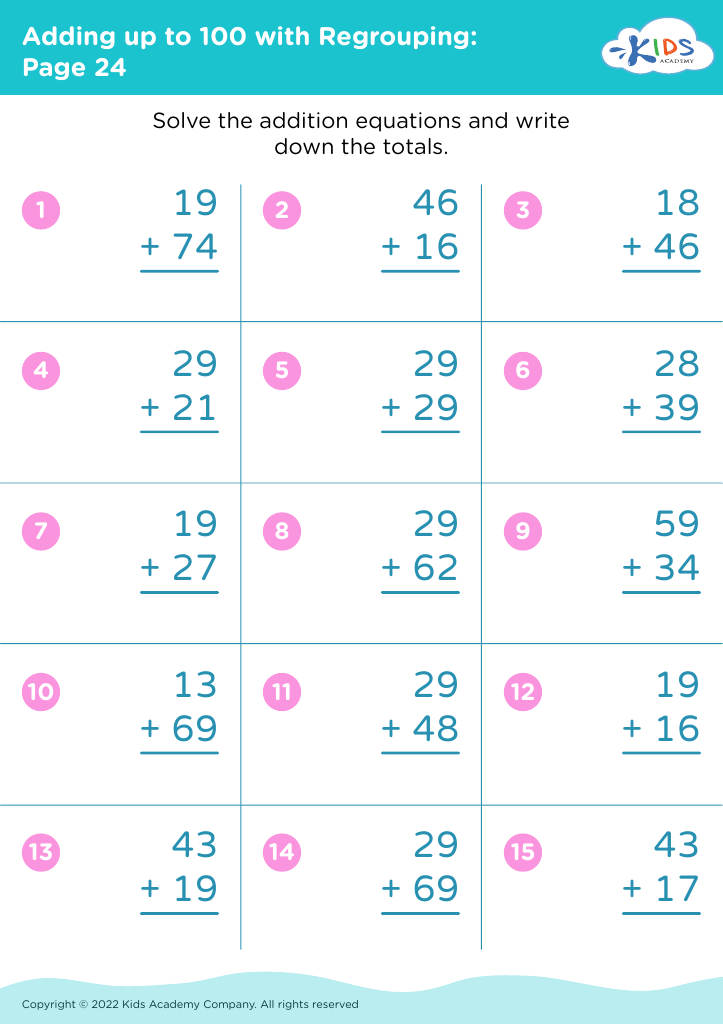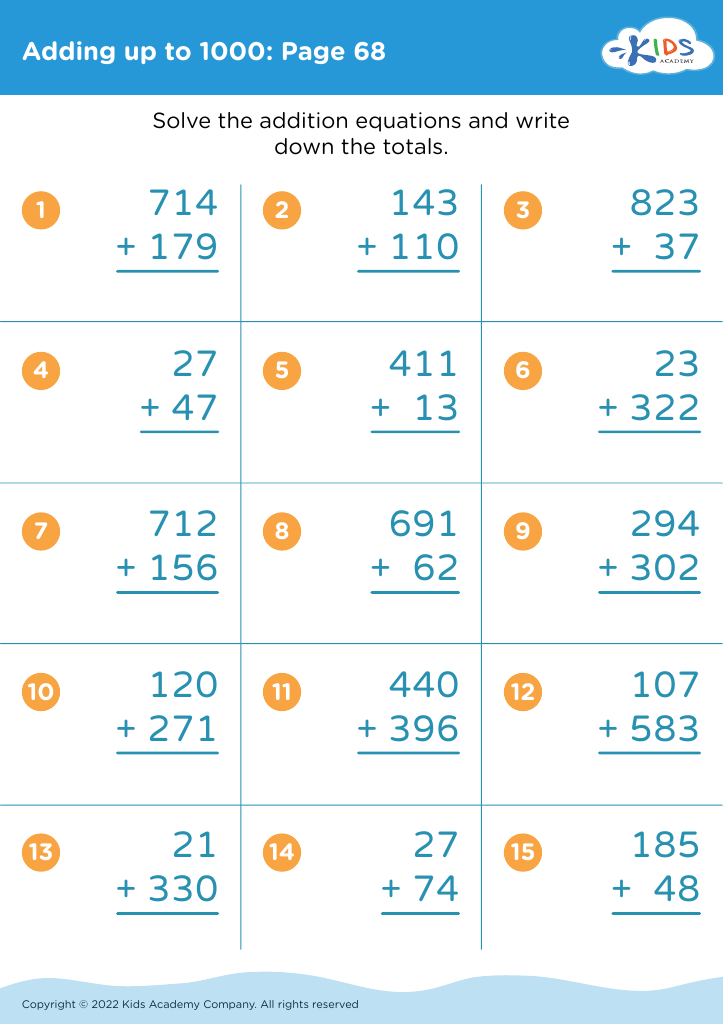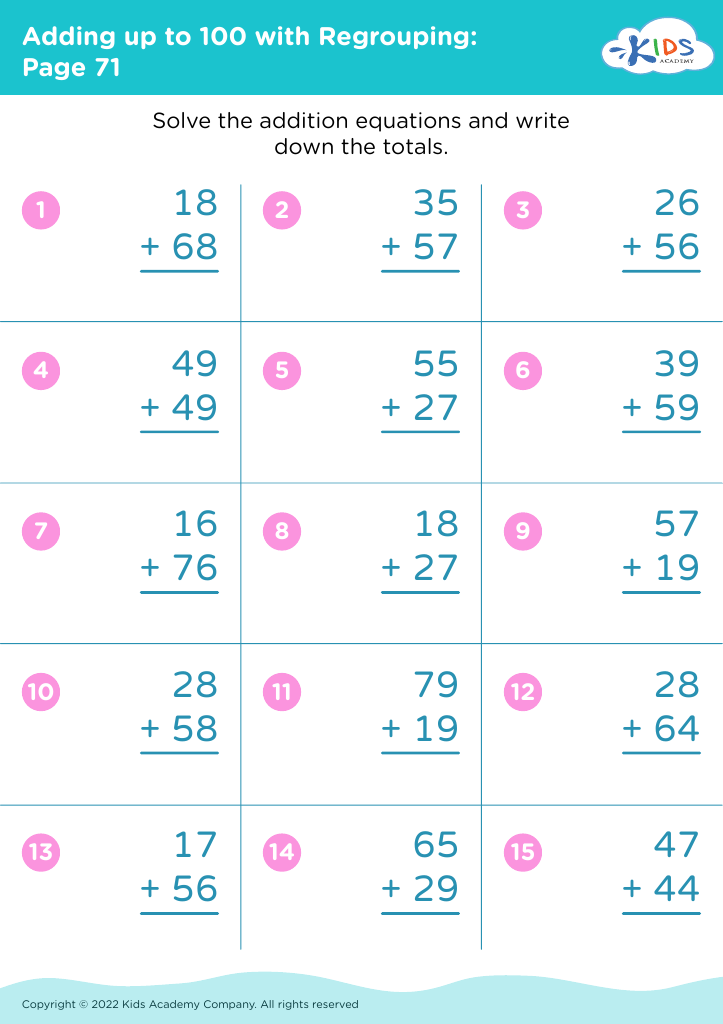Critical thinking skills Addition & Subtraction Worksheets for Ages 3-7
8 filtered results
-
From - To
Introduce young learners to the world of math with our "Critical Thinking Skills Addition & Subtraction Worksheets for Ages 3-7". These engaging worksheets are designed to foster critical thinking while honing fundamental math skills. Through interactive exercises, children learn to approach problems strategically, promoting analytical skills crucial for later academic success. Perfect for both classroom and home use, our worksheets feature fun themes and visuals that captivate children's attention. This resource not only empowers kids to master addition and subtraction but also enhances their logical reasoning abilities, setting a solid foundation for their educational journey. Explore and make math both exciting and meaningful.
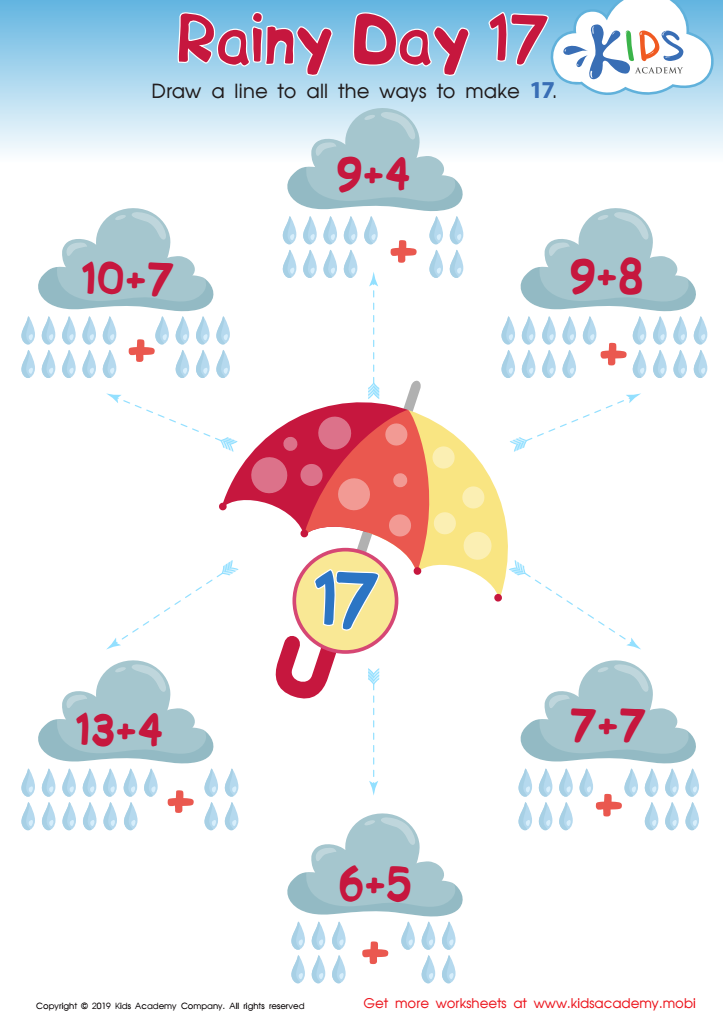

Rainy Day 17 Worksheet
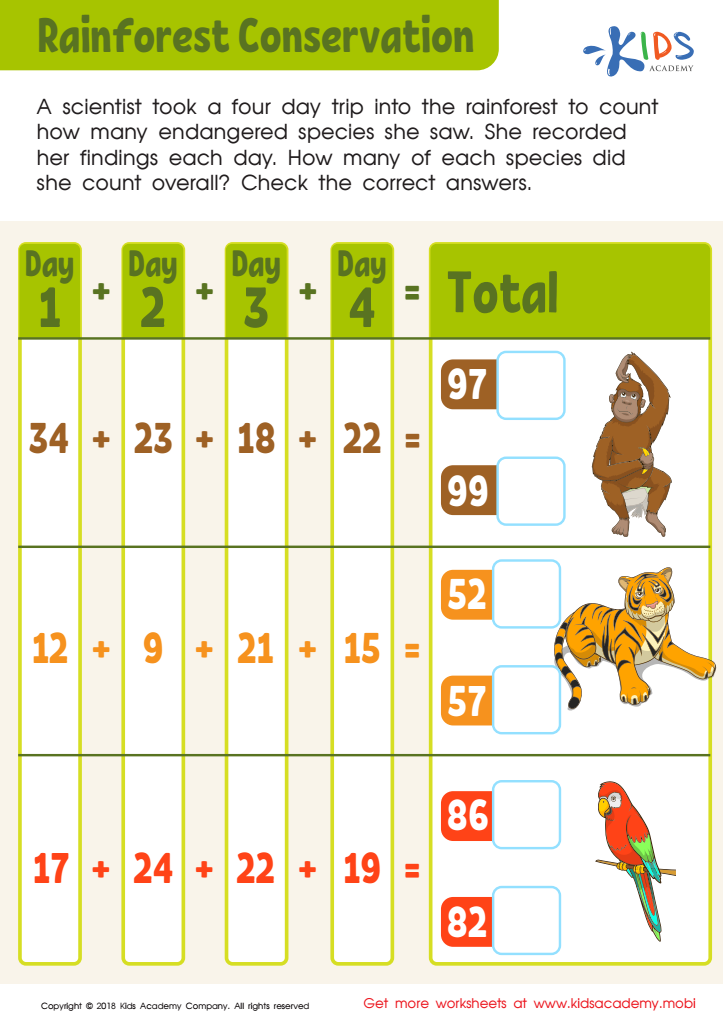

Rainforest Conservation Worksheet
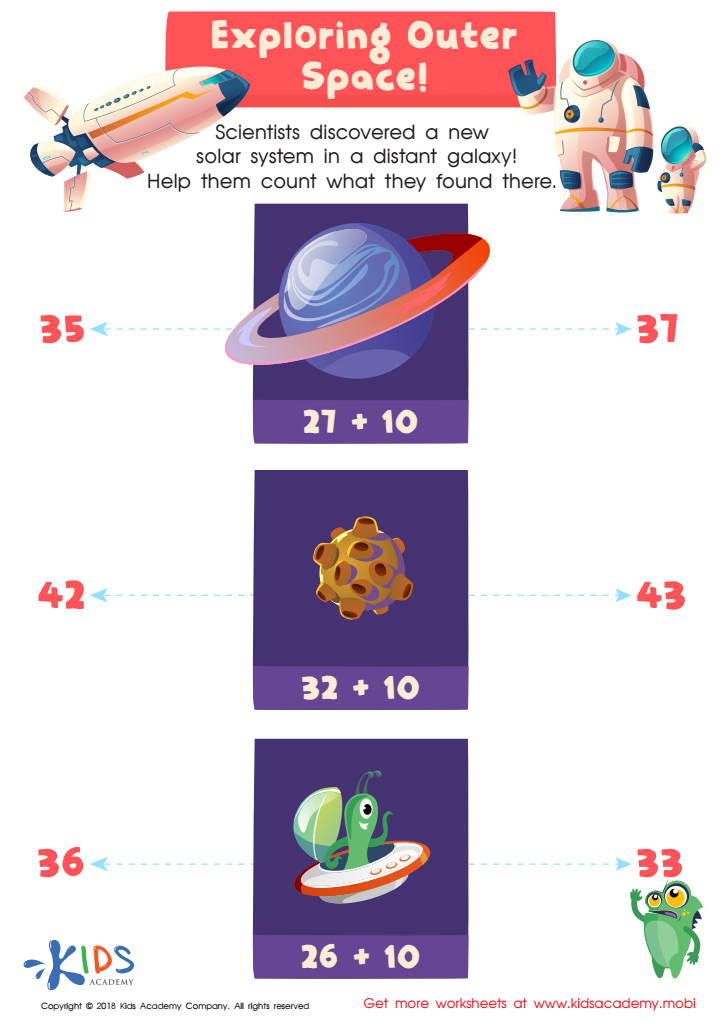

Exploring Outer Space Worksheet
Critical thinking skills in addition and subtraction for ages 3-7 play a crucial role in early childhood development, shaping a child's future learning capabilities. These foundational math skills go beyond simply recounting numbers; they foster logical reasoning, problem-solving, and analytical thinking. Encouraging children to understand the "why" and "how" behind adding and subtracting builds cognitive skills that significantly contribute to their overall intellectual growth.
When parents and teachers prioritize developing critical thinking in math, they equip young learners with the tools to approach problems creatively and methodically. For example, asking children to explain their thought process in solving an addition or subtraction problem encourages deeper understanding and reinforces their learning. This method shifts focus from rote memorization to comprehension, fostering a growth mindset where children feel more confident and less anxious about tackling new challenges.
Moreover, these skills are translatable to other subjects and everyday life situations. Early competence in math sets a positive precedent for tackling complex tasks across academic disciplines. Therefore, nurturing critical thinking in addition and subtraction from an early age is a proactive step in ensuring children are not only imaginatively engaged but also prepared for future educational and life challenges, leading to well-rounded, resilient individuals.
 Assign to My Students
Assign to My Students

